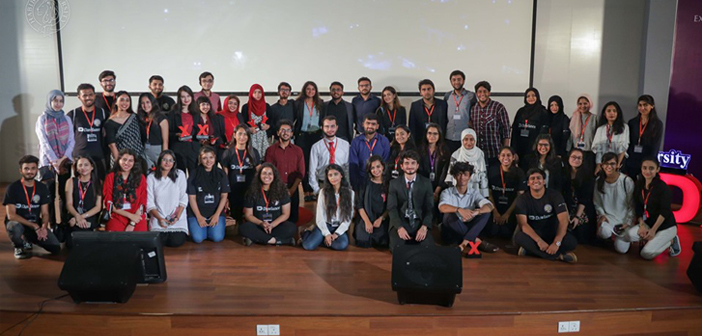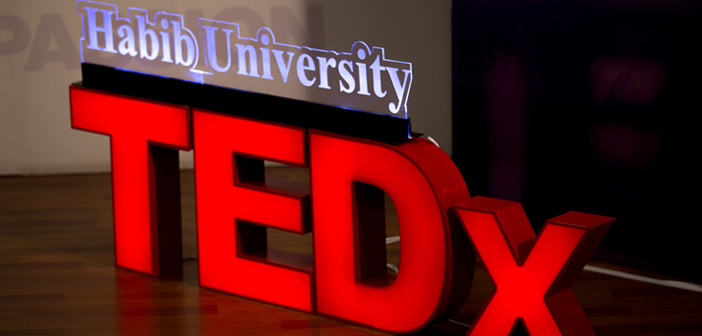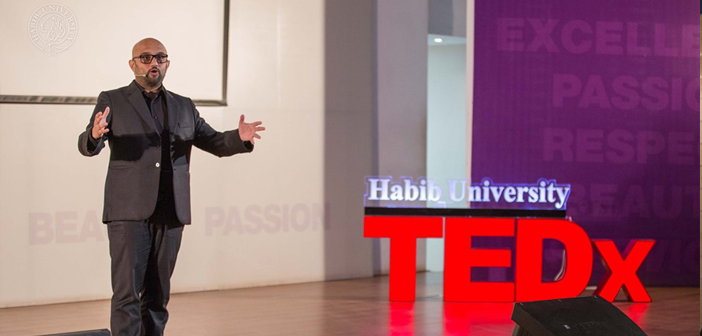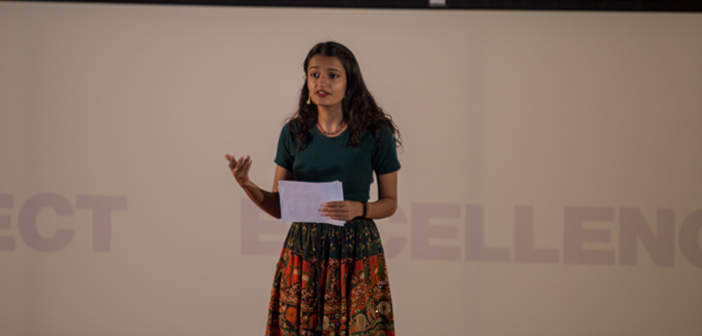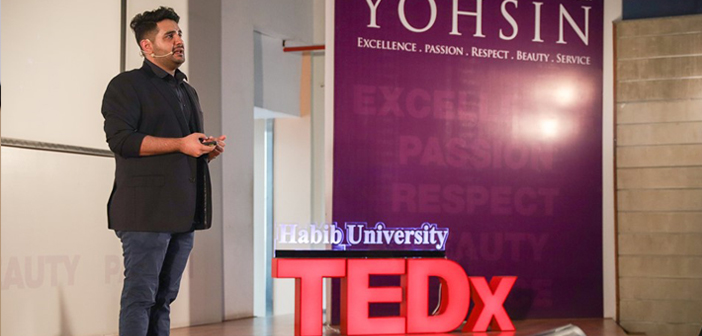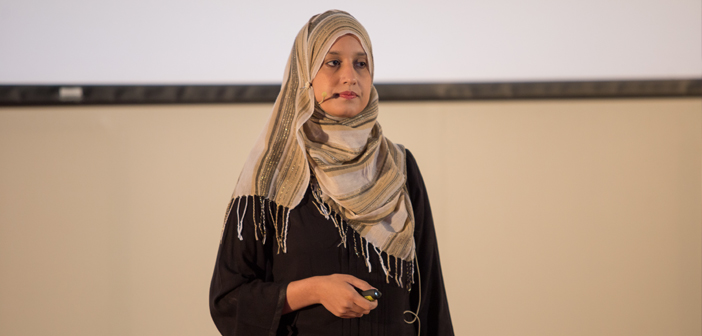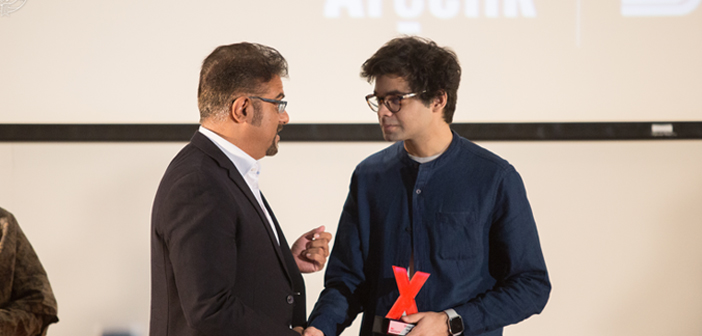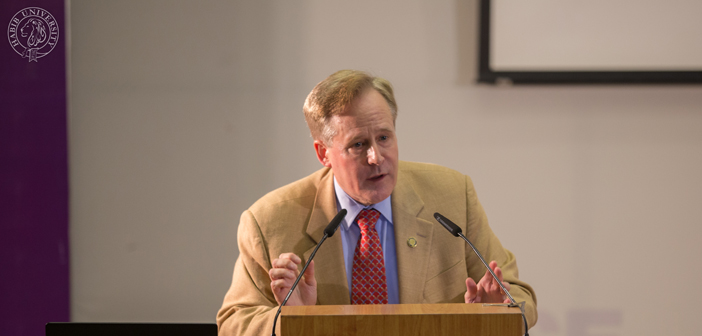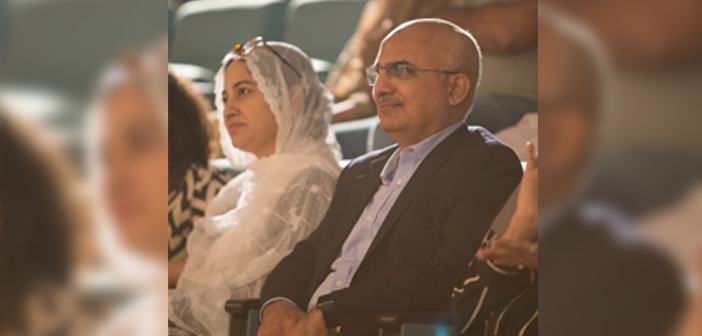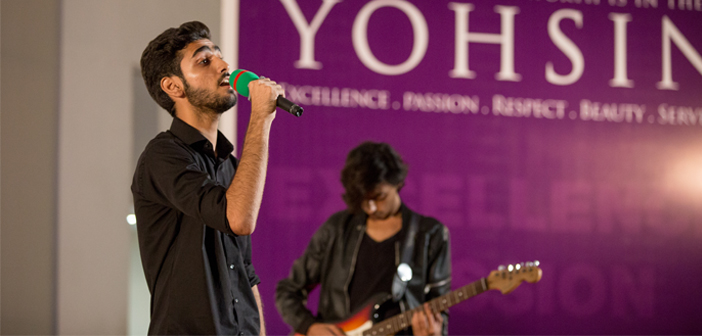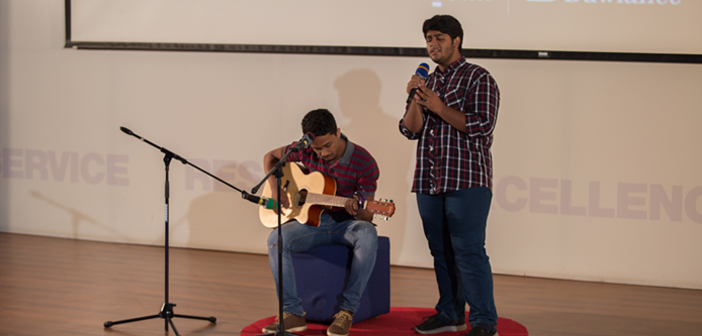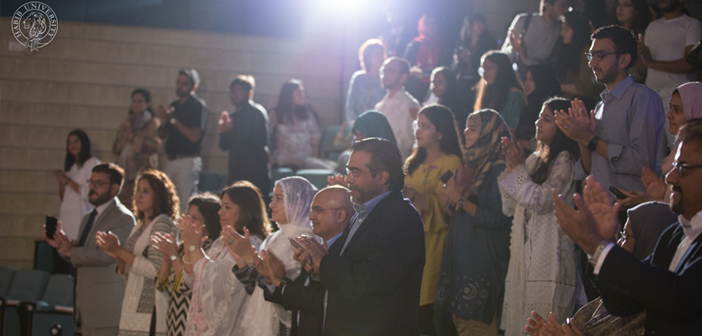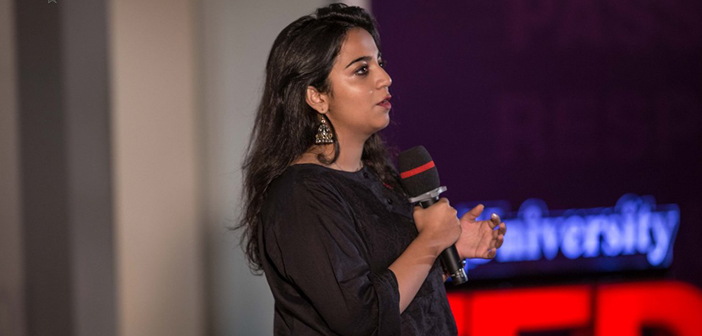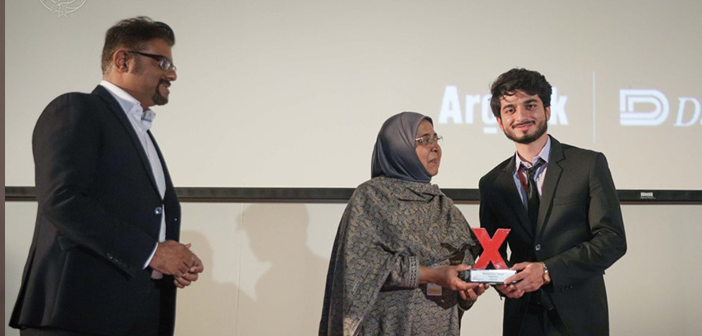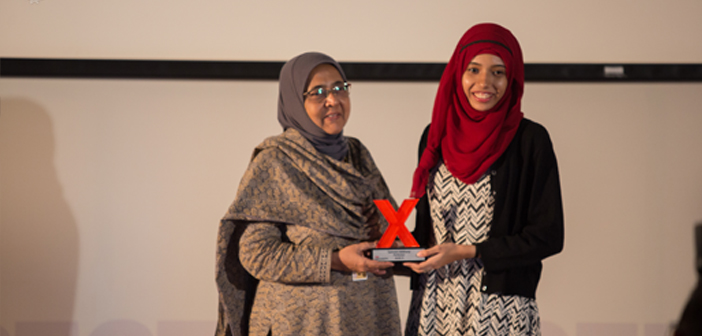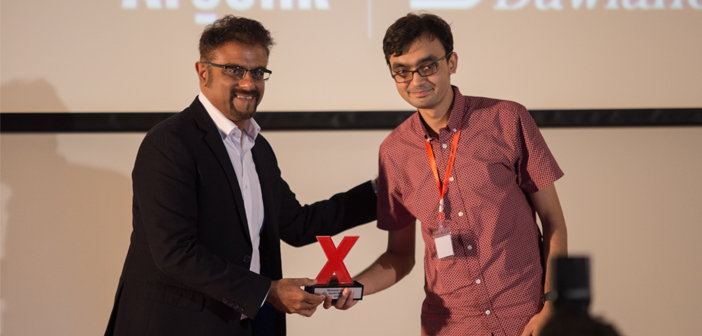As part of its philosophy of inspiring new ideas and bringing together diverse communities, Habib University on September 28th 2019, held a TEDxHabibUniversity event where prominent speakers addressed important social issues that were being faced by people in South Asia.
The day-long gathering at the HU campus served as a platform where notable academics, industry experts, innovators, artists, and inspired thinkers from diverse backgrounds shared their work experiences in order to cultivate and engage a community of curious minds with innovative ideas.
This was Habib University’s second TEDx event – with the first being held in 2017. The theme of the conference, ‘What If?’, delved into the discourse that follows South Asia in media, arts, culture and science. It revolved around the idea of reimagining the world and exploring some of the possibilities that lay beyond ordinary human experiences and limitations.
The purpose of this theme was to instill a sense of wonder among people from different communities, which could in turn act as a driving force that would help inspire them towards their overall development.
A number of prominent speakers at the TEDx event gave inspirational speeches and shared personal examples with those in attendance, calling on them to step outside their comfort zones and achieve their full potential as individuals with their own unique talents.
Among the speakers were Mr. Mushtaq Chhapra, a noted entrepreneur and philanthropist, who has played a prominent role in co-founding three of Pakistan’s most successful welfare initiatives; The Kidney Center, Patients’ Aid Foundation, and The Citizen’s Foundation.
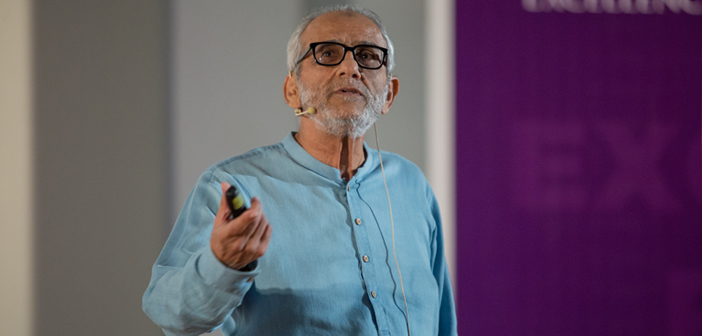
Mr. Chhapra addressed the topic of ‘What if health and education could be accessible to all?’ and drew upon his more than three decades of experience in tackling problems related to the massive underfunding of the healthcare and education sectors in Pakistan, which has had a diminishing impact on the quality life for a majority of the country’s population.
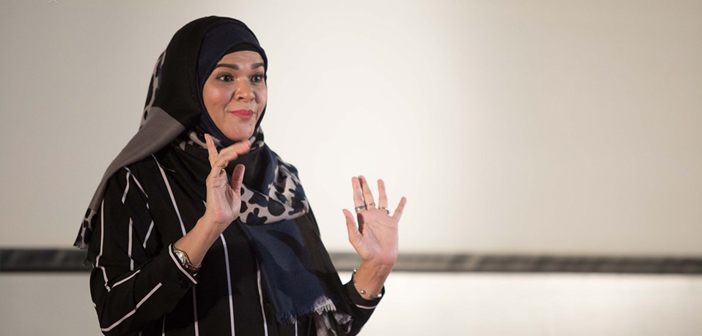
One of the most inspiring speakers at the event were Nighat Tahir, an entrepreneur and owner of ‘Ashna Beauty Parlor’ who explained to the audience the many challenges and hurdles she had to overcome as a person with speech and hearing impairments. She told attendees that facing difficulties made her a stronger person and drove her to work hard, be a successful businessperson, and serve as a role model for others.
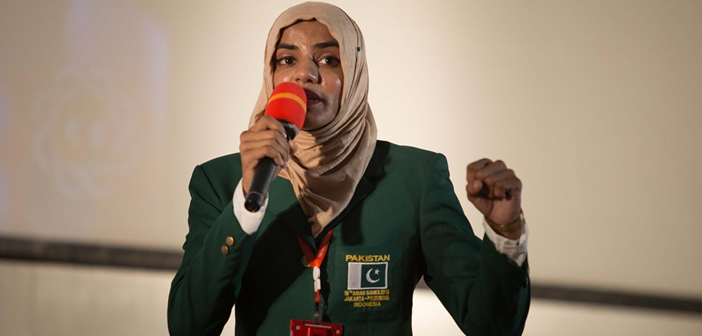
Razia Bano, the first National Women Boxing Champion of Pakistan, also spoke at the event and described the many setbacks she had in life. She explained how she almost gave up on her passion for boxing, but through the steadfast support of teachers, mentors and family she reached her goal of being a champion. Razia said if she had given up on her dreams, she would not have been able to stand at the TEDx podium and give her own personal example on how to challenge gender stereotypes and make others realize the extraordinary capabilities that women have.
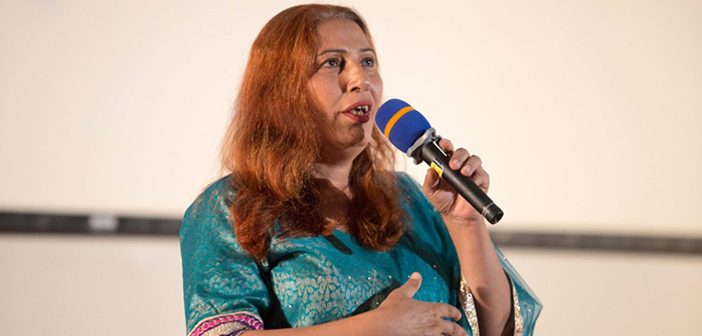
Perhaps the most unique personal story of the evening was that of Bindiya Rana, a transgender activist and primary representative of Pakistan’s Khwaja Sira community. Bindya, who is also the founder and president of the Gender Interactive alliance (GIA), relayed her remarkable resilience in advocating for the rights of the country’s transgender community. Despite the many hardships and discrimination she has faced, Bindya said that she was determined to open closed minds and would continue to struggle for the rights of all people because her faith in serving other human beings calls her to do so.
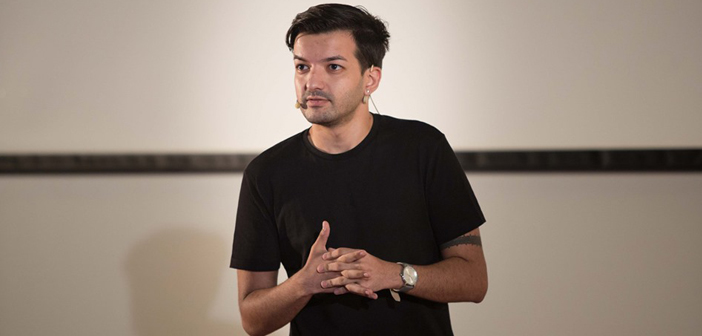
Another prominent speaker was Dr. Muhammad Moiz, a women’s rights activist, policy maker, and comedian. A few years ago, he came out with a Snapchat character, ‘Shumaila Bhatti’, who explores the challenges women face while living in Pakistan’s hierarchical male-dominated society. Dr. Moiz spoke on the topic of patriarchy in society and how to confront social issues through the prism of progress and change.
Usman Riaz, a TEDx Senior Fellow and a prominent artist and composer, also spoke at the event, where he shared his experiences as the founder of ‘Mano’ – Pakistan’s first ever hand-drawn animation studio. Usman spoke on the question of ‘What If Mano never existed’ and how different would things have been if he did not help found an animation studio that provides local artists with a platform to excel in. He encouraged aspiring artists to be focused and understand that they have a place in Pakistan where they can follow their dreams.
The event embodied the liberal arts principles of Habib University, as speakers at the event aimed to not only question the everyday actions of ordinary people, but also highlight those of successful communities, while bringing attention to some of the issues that developing societies face.
The openness of a theme like What If? helped Habib University provide a platform for an event that incorporated worthwhile ideas from all spheres of life. By bringing together people from diverse backgrounds and experiences, TEDxHabibUniversity was a dynamic stage for the exchange of ideas and offered examples of overcoming personal struggles that will inspire others to emulate.

